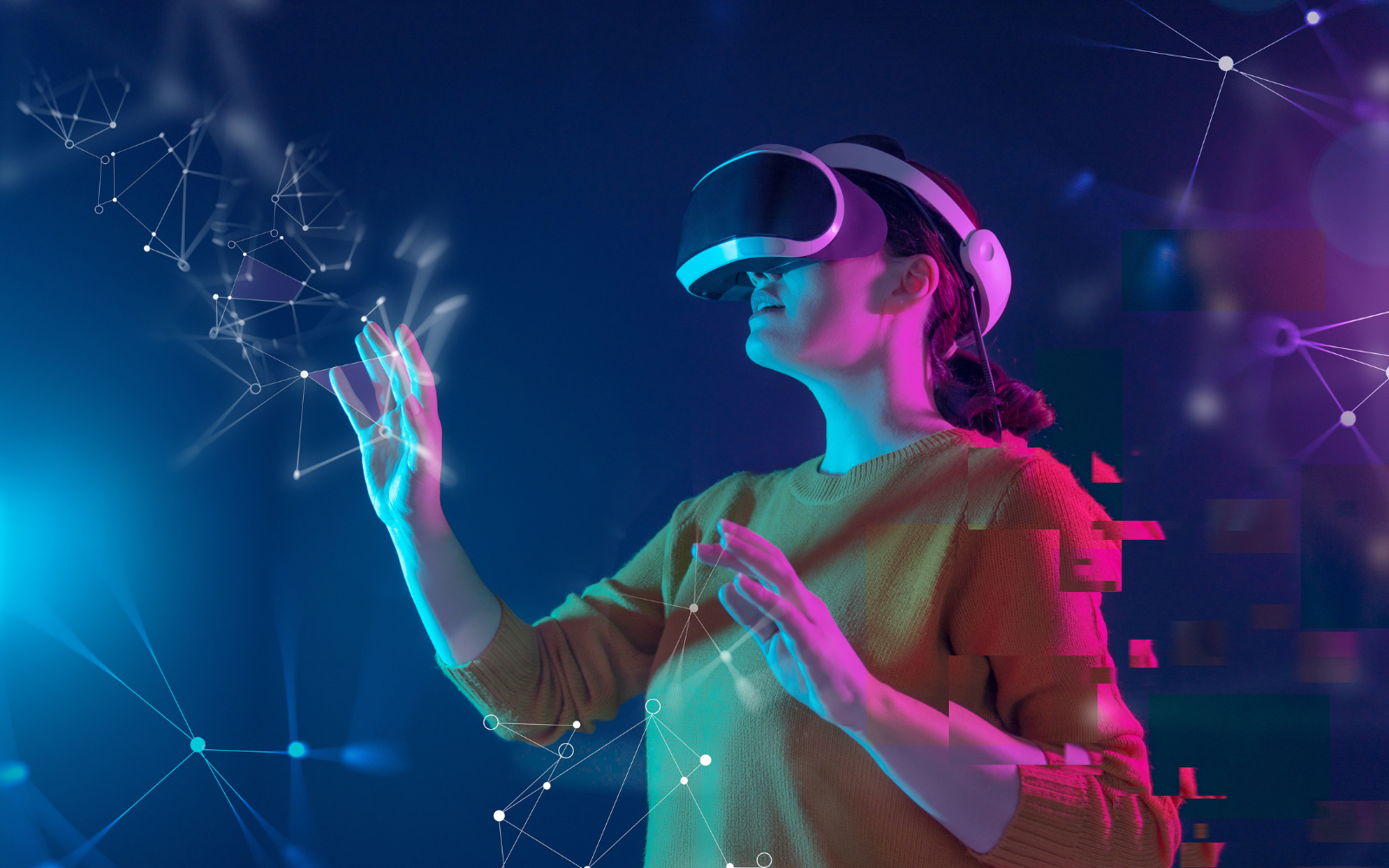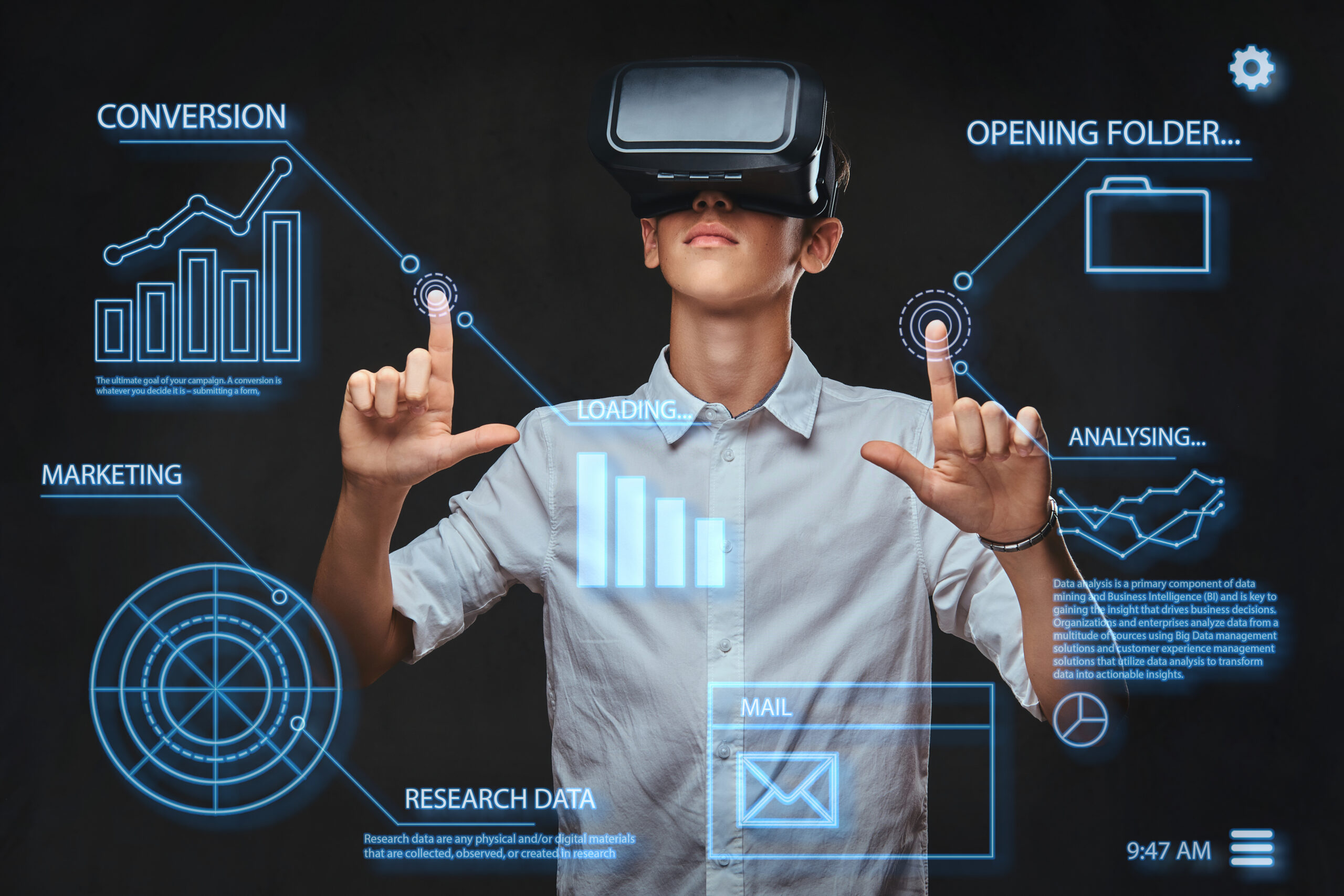The concept of the metaverse has been gaining a lot of attention lately, but what exactly is it, and why should we care? From social media platforms to tech companies, everyone seems to be talking about the metaverse as the next big thing. In this blog post, we’ll explore what the metaverse is, how it works, and why it’s becoming such an important part of our digital future.
What Is the Metaverse?
The term “metaverse” is a combination of “meta,” meaning beyond, and “universe.” Essentially, the metaverse is a virtual world where people can interact with each other and digital environments in real time. Imagine a space where you can hang out with friends, attend concerts, shop, work, and even travel—all without leaving your home. The metaverse is like the internet, but instead of just browsing websites, you’re fully immersed in a 3D digital world.
The metaverse isn’t a single place. It’s a network of interconnected virtual worlds, each offering different experiences. These worlds can be accessed through various devices like computers, smartphones, and, most importantly, virtual reality (VR) headsets. The goal is to create a seamless blend of the physical and digital worlds, where your online interactions feel just as real as your face-to-face ones.
How Does the Metaverse Work?
The metaverse is built on advanced technologies like virtual reality (VR), augmented reality (AR), blockchain, and artificial intelligence (AI). Here’s a quick breakdown of how these technologies work together:
- Virtual Reality (VR): VR creates fully immersive digital environments that you can explore using a VR headset. In the metaverse, VR allows you to step into a 3D world and interact with it as if you were physically there.
- Augmented Reality (AR): AR overlays digital content onto the real world. For example, you might see virtual objects or information displayed through your smartphone camera or AR glasses. AR bridges the gap between the physical and digital worlds, making the metaverse more accessible.
- Blockchain: Blockchain technology ensures that digital assets, like virtual real estate or NFTs (non-fungible tokens), are unique and can be securely owned and traded in the metaverse. It’s the backbone of the metaverse economy, allowing for decentralized ownership and transactions.
- Artificial Intelligence (AI): AI powers the metaverse by creating realistic avatars, personalizing experiences, and managing vast amounts of data. AI helps make the metaverse more interactive and engaging.
Why Does the Metaverse Matter?
The metaverse is more than just a futuristic idea—it has the potential to transform how we live, work, and play. Here’s why it matters:
- New Social Experiences
The metaverse offers a new way to connect with people. Instead of chatting through text messages or video calls, you can meet up with friends in a virtual café, attend a virtual concert together, or explore a digital city. These experiences feel more immersive and interactive than traditional online communication.
- Revolutionizing Work and Education
The metaverse could change the way we work and learn. Imagine attending a virtual office where you can collaborate with colleagues from around the world, all within a shared digital space. Virtual classrooms could offer interactive lessons, where students can explore historical sites or conduct science experiments without leaving their homes. The possibilities for remote work and education are endless.
- A New Economy
The metaverse is also creating a new digital economy. People can buy, sell, and trade virtual goods and services, just like in the real world. For example, you can purchase virtual clothing for your avatar, invest in digital real estate, or collect NFTs. Some companies are even building virtual stores where you can shop for both digital and physical products.
- Entertainment and Creativity
For gamers, artists, and creators, the metaverse is a playground of endless possibilities. Game developers can create entire worlds for players to explore, while artists can showcase and sell their digital art. Musicians can host virtual concerts, reaching a global audience without the need for physical venues. The metaverse provides a platform for creativity that goes beyond the limits of the physical world.
- Innovative Business Opportunities
Businesses are already exploring how they can leverage the metaverse to reach customers in new ways. Brands are creating virtual stores, hosting virtual events, and even designing custom experiences for their customers. The metaverse offers a unique space for marketing, product launches, and customer engagement, opening up new opportunities for growth and innovation.
Challenges and Concerns
While the metaverse holds incredible potential, it also raises some important questions and challenges:
- Privacy and Security: As more personal data is collected in the metaverse, concerns about privacy and security become more pressing. How can we ensure that our data is protected in this new digital world?
- Digital Divide: Not everyone has access to the technology needed to participate in the metaverse. This could widen the gap between those who can afford the necessary devices and those who cannot, leading to a digital divide.
- Regulation and Governance: Who will regulate the metaverse? With its decentralized nature, it’s unclear how laws and regulations will apply in this virtual world. Issues like intellectual property rights, content moderation, and digital ownership need to be addressed.
- Impact on Mental Health: The immersive nature of the metaverse could lead to overuse, addiction, or even social isolation. It’s important to strike a balance between our digital and physical lives to maintain well-being.
The Future of the Metaverse
The metaverse is still in its early stages, but it’s rapidly evolving. Tech giants like Facebook (now Meta), Microsoft, and Google are investing heavily in building the infrastructure and platforms for the metaverse. As these technologies mature, we can expect the metaverse to become a more integral part of our daily lives.
In the future, the metaverse could be as common as the internet is today. It could change the way we interact with each other, how we do business, and how we experience the world. Whether it’s through socializing, working, learning, or creating, the metaverse offers endless possibilities that are only just beginning to unfold.
Conclusion
The metaverse is an exciting frontier in the world of technology. It promises to reshape our experiences, open up new opportunities, and create a digital world that feels just as real as the physical one. While there are challenges to overcome, the potential benefits of the metaverse are immense. As we continue to explore and build this new digital space, it’s important to stay informed, embrace the possibilities, and navigate the challenges responsibly. The metaverse is not just a trend—it’s a glimpse into the future of our digital lives.




